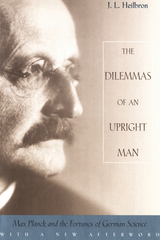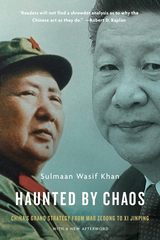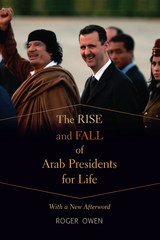
In 1976, at age twenty-five, Stephen Kinzer arrived in Nicaragua as a freelance journalist—and became a witness to history. He returned many times during the years that followed, becoming Latin America correspondent for the Boston Globe in 1981 and joining the foreign staff of the New York Times in 1983. That year he opened the New York Times Managua bureau, making that newspaper the first daily in America to maintain a full-time office in Nicaragua.
Widely considered the best-connected journalist in Central America, Kinzer personally met and interviewed people at every level of the Somoza, Sandinistas and contra hierarchies, as well as dissidents, heads of state, and countless ordinary citizens throughout the region.
Blood of Brothers is Kinzer’s dramatic story of the centuries-old power struggle that burst into the headlines in 1979 with the overthrow of the Somoza dictatorship. It is a vibrant portrait of the Nicaraguan people and their volcanic land, a cultural history rich in poetry and bloodshed, baseball and insurrection.

In this moving and eloquent portrait, John Heilbron describes how the founder of quantum theory rose to the pinnacle of German science. With great understanding, he shows how Max Planck suffered morally and intellectually as his lifelong habit of service to his country and to physics was confronted by the realities of World War I and the brutalities of the Third Reich.
In an afterword written for this edition, Heilbron weighs the recurring questions among historians and scientists about the costs to others, and to Planck himself, of the painful choices he faced in attempting to build an “ark” to carry science and scientists through the storms of Nazism.


Through an intensive clinical study of forty incest victims and numerous interviews with professionals in mental health, child protection, and law enforcement, Judith Herman develops a composite picture of the incestuous family. In a new afterword, Herman offers a lucid and thorough overview of the knowledge that has developed about incest and other forms of sexual abuse since this book was first published.
Reviewing the extensive research literature that demonstrates the validity of incest survivors' sometimes repressed and recovered memories, she convincingly challenges the rhetoric and methods of the backlash movement against incest survivors, and the concerted attempt to deny the events they find the courage to describe.

An American Interest Book of the Year
“Readers will not find a shrewder analysis as to why the Chinese act as they do.”
—Robert D. Kaplan
“An outstanding contribution to our understanding of that most urgent of contemporary geopolitical questions: what does China want?”
—Rana Mitter
Before the Chinese Communist Party came to power, China lay broken and fragmented. Today it dominates the global stage, and yet its leaders have continued to be haunted by the past. Analyzing the calculus behind decision making at the highest levels, Sulmaan Wasif Khan explores how China’s leaders have harnessed diplomatic, military, and economic power to keep a fragile country safe in a hostile world. At once shrewd and dangerous, Mao Zedong made China whole and succeeded in keeping it so while the caustic Deng Xiaoping dragged China into the modern world. Jiang Zemin and Hu Jintao were cautious custodians of Deng’s legacy, but Xi Jinping has shown a mounting assertiveness that has raised concern across the globe.
China’s grand strategies, while costly, have been largely successful. But will this time-tested approach be enough to tackle the looming threats of our age?
“Written with verve and insight, this will become the go-to book for anyone interested in the foundations of China’s grand strategy under Communist rule.”
—Odd Arne Westad, author of The Cold War
“Khan’s brilliant analysis will help policymakers understand the critical rise of China…Crucial if we are to avoid conflict with this emerging superpower.”
—Admiral James Stavridis, former Supreme Allied Commander of NATO
“Khan argues that since before the People’s Republic of China’s founding, Chinese rulers have held remarkably consistent objectives, even as their definition of security has expanded.”
—Mira Rapp-Hooper, War on the Rocks

“Here at last is a genuinely readable, genuinely responsive history of the Arabs.”—Edward W. Said, Los Angeles Times Book Review
Upon its publication in 1991, Albert Hourani’s masterwork was hailed as the definitive story of Arab civilization, and became both a bestseller and an instant classic. In a panoramic view encompassing twelve centuries of Arab history and culture, Hourani brilliantly illuminated the people and events that have fundamentally shaped the Arab world.
Now this seminal book is available in an expanded second edition. Noted Islamic scholar Malise Ruthven brings the story up to date from the mid-1980s, including such events as the Gulf War; civil unrest in Algeria; the change of leadership in Syria, Morocco, and Jordan; and the aftermath of the events of September 11, 2001. The terrorist attacks in the United States, ongoing crisis in Iraq, and renewed violence between Israelis and Palestinians all underscore the need for a balanced and well-informed understanding of the Arab world, and make this insightful history of the Arab peoples more important than ever.


A Physics Today Best Book of the Year
A Forbes “For the Physics and Astronomy Lover in Your Life” Selection
“Succinct, accessible, and remarkably timely… This book is a rare find.”
—Physics Today
“Belongs on the shelf of anyone interested in learning the scientific, historical, and personal stories behind some of the most incredible scientific advances of the 21st century.”
—Forbes
The detection of gravitational waves has already been called the scientific breakthrough of the century. Einstein predicted these tiny ripples in the fabric of spacetime over a hundred years ago, but they were only recently perceived directly for the first time. Ripples in Spacetime is an engaging account of the international effort to complete Einstein’s project, capture his elusive ripples, and launch an era of gravitational-wave astronomy that promises to explain, more vividly than ever before, our universe’s structure and origin.
“Schilling’s deliciously nerdy grand tour takes us through compelling backstory, current research, and future expectations.”
—Nature
“A lively and readable account… Schilling underlines that this discovery is the opening of a new window on the universe, the beginning of a new branch of science.”
—Graham Farmelo, The Guardian

The monarchical presidential regimes that prevailed in the Arab world for so long looked as though they would last indefinitely—until events in Tunisia and Egypt made clear their time was up. The Rise and Fall of Arab Presidents for Life exposes for the first time the origins and dynamics of a governmental system that largely defined the Arab Middle East in the twentieth century.
Presidents who rule for life have been a feature of the Arab world since independence. In the 1980s their regimes increasingly resembled monarchies as presidents took up residence in palaces and made every effort to ensure their sons would succeed them. Roger Owen explores the main features of the prototypical Arab monarchical regime: its household; its inner circle of corrupt cronies; and its attempts to create a popular legitimacy based on economic success, a manipulated constitution, managed elections, and information suppression.
Why has the Arab world suffered such a concentration of permanent presidential government? Though post-Soviet Central Asia has also known monarchical presidencies, Owen argues that a significant reason is the “Arab demonstration effect,” whereby close ties across the Arab world have enabled ruling families to share management strategies and assistance. But this effect also explains why these presidencies all came under the same pressure to reform or go. Owen discusses the huge popular opposition the presidential systems engendered during the Arab Spring, and the political change that ensued, while also delineating the challenges the Arab revolutions face across the Middle East and North Africa.
READERS
Browse our collection.
PUBLISHERS
See BiblioVault's publisher services.
STUDENT SERVICES
Files for college accessibility offices.
UChicago Accessibility Resources
home | accessibility | search | about | contact us
BiblioVault ® 2001 - 2024
The University of Chicago Press









